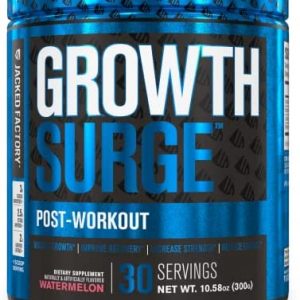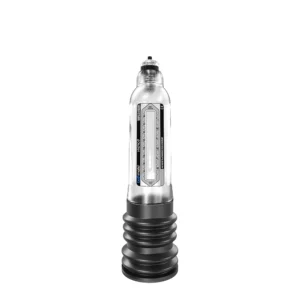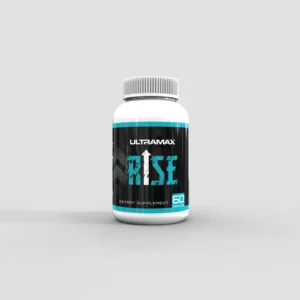
No one likes to be sick. For the last ten days, I haven’t felt well. I’ve been wheezing and coughing. I have shortness of breath and chest tightness. It’s worse at night and not being able to breathe is frightening. I just want to be well so I can get back to doing my work and the things I enjoy. I went to the doctor, got some medications and was prescribed an inhaler. But since I’m sick and I’m a writer, it seems appropriate that I write about being sick.
I’m realizing that sickness is an opportunity to go deeper, beyond just relieving symptoms or getting rid of the illness. Most of our modern medicine focuses on quick fixes and doesn’t look at underlying causes or the meaning of sickness in our lives and what it might teach us.
Like many of us who are health-oriented, I have a number of doctors I see. I have my GP who I like, but who is pretty much conventional-medicine-and-medication oriented. I also see a “functional medication doctor.” Here’s how she describes this emerging field of practice:
“Functional Medicine (FM) sees a diagnosis as a set of symptoms that stem from an underlying cause or causes, which is different for each one of us. For example, asthma can stem from differing causes. FM utilizes sophisticated lab testing and thorough investigation to determine the root cause of a person’s illness and work to reverse it from there. FM is true preventative medicine.”
In my case, the conventional medicine doctor, diagnosed my illness as asthma and the treatment prescribed was the use of a long-acting steroid medication, Symbicort, along with Robitussin with codeine to keep me from coughing so much at night. She’s not totally conventional so she also prescribed zinc lozenges and elderberry syrup which contains natural substances called flavonoids that can help reduce swelling, fight inflammation, and boost the immune system.
Functional medicine is not opposed to conventional medicine and my functional medicine doctor encourages me to take my medications as prescribed, but FM looks more broadly at underlying causes of chronic disease, which is what most of us suffer from, particularly as we age. It also seeks to prevent illness in the first place, rather than waiting to treat it after it occurs.
“This is big picture medicine,” says my FM doctor. “This is slow medicine; it will never be a 10-day course of a prescription to turn your life around and then you can go back to your bad habits. FM requires some lifestyle changes, often it requires lots of them, and it takes time. You will be an active participant in your health, your practitioner will offer the knowledge and the direction.”
Part of FM is to recognize that illness isn’t just something we get, that we are passive victims of our genetics, a virus, or bacteria. FM recognizes that there is meaning to the illness. There are reasons we get sick when we do and there are lessons a particular illness might be trying to teach us.
I wondered what getting asthma might be trying to teach me. One lesson, I’m convinced, is that the trigger was the early spring weather we’ve been having with no rain the whole month of February and now into March. I believe the global climate crisis is creating problems that impact our individual lives. Pollens that might have been common in April are coming on sooner. Can global climate change be impacting our personal health? I believe it does. Healing our individual illnesses might require that we also address the illness that we are experiencing on a planetary level.
I also was interested in what Louise Hay might say about asthma. Hay was an American motivational author and the founder of Hay House. She authored several new thought self-help books, including the 1984 book, Heal Your Body. According to Hay, “Illness however mild or severe is an indicator of your emotional state.” Our thoughts and feelings can have a profound effect on the illnesses that we get.
I’ll admit, at first, I was skeptical about her list of illnesses with accompanying descriptions that point to underlying causes. Seemed like too much new age hocus pocus. But I found tremendous wisdom in what she offered that has helped be better understand my illnesses and how to treat them.
Here’s what she says about asthma: “Smother love. Inability to breathe for one’s self. Feeling stifled. Suppressed crying.” When I reflected on my long history of having asthma attacks, this simple statement made sense. I was raised by a mother who was always afraid I would die and often smothered me with love as a way to protect me from harm. She could also be very supportive of my independence. Under stress I often revert to the smother love victim mode and need to learn to breathe for myself.
My wife, Carlin, said a similar thing to me about the asthma. “There are two competing forces going on inside you, one from the past wounds where you were often sick and taken care of by a woman who loved you, but smothered you. It was like you were living in a bell jar of comfortable woundedness. The other force is one of creative leadership and adventure where you break free from the restrictions and heal old wounds.”
I realized my present “dis-ease” was not something to take medicine so I could make it disappear. Medicine could help, but there were deeper understandings to be engaged and accepted. I realize I was longing for love, but not realizing the difference between creative, healing love, and smother love. As I began to embrace the deeper meaning of my inability to breathe easy, things began to improve.
Another healer, Lissa Rankin, M.D. holds a similar view. In her book, Mind Over Medicine: The Scientific Proof You Can Heal Yourself, she begins with some critical questions based on her own research and a lot of science on the underlying basis for healing. “What if I told you that caring for your body is the least important part of your health…that for you to be truly vital, other factors are more important? What if the key to health isn’t just eating a nutritious diet, exercising daily, maintaining a healthy weight, getting eight hours of sleep, taking your vitamins, balancing your hormones, or seeing your doctor for regular checkups?”
She goes on to say, “Certainly, these are all important, even critical, factors to optimizing your health. But what if something else is even more important? What if you have the power to heal your body just by changing how your mind thinks and feels?”
Being sick is an amazing opportunity. It can be a vision-quest in search of how we heal our lives by understanding our thoughts and feelings, our fears and beliefs. This is a different kind of medicine and one that promises a whole new way to think about life, love, meaning, and health. I look forward to your comments. If you’d like to read more articles about health and healing, please visit my blog here.
The post When We’re Sick: What We Can Learn About Life, Love, and Meaning appeared first on MenAlive.




